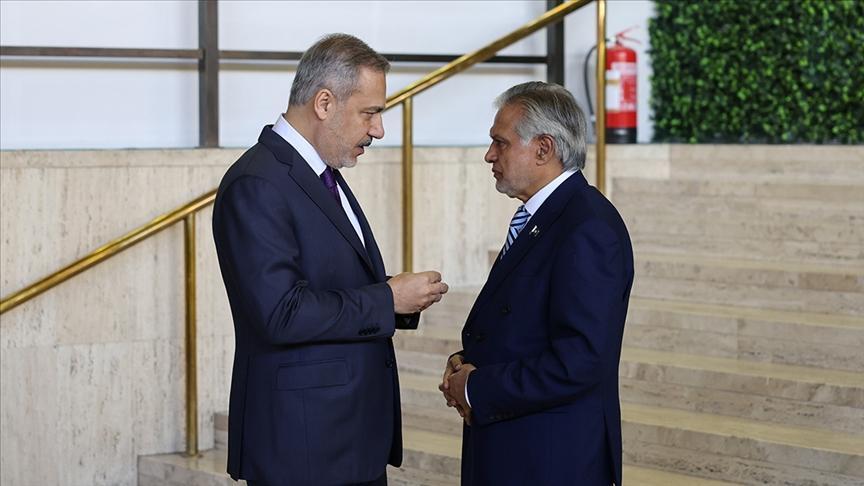
Foreign Minister Hakan Fidan held a phone call with his Pakistani counterpart, Muhammad Ishaq Dar, late Tuesday to address the escalating tensions between Pakistan and India, Turkish diplomatic sources said on May 7.
The discussion focused on recent tensions in the region,following India’s reported midnight strikes on cities in Pakistan and Pakistan-administered Kashmir. Pakistan condemned the attacks as a violation of its sovereignty, asserting its right to respond, according to a statement from Islamabad. Specific details of the conversation between Fidan and Dar were not disclosed.
The latest escalation stems from a deadly attack on April 22 in Pahalgam, Indian-administered Kashmir, where 26 people, mostly tourists, were killed. India accused Pakistan of supporting the attackers, citing cross-border links, a claim Pakistan has firmly denied. The Resistance Front (TRF), believed to be linked to Pakistan-based Lashkar-e-Taiba, initially claimed responsibility for the assault, which targeted Hindu tourists in Baisaran Valley, according to Indian authorities.
In response to the Pahalgam attack, both nations have implemented severe diplomatic measures. India suspended the 1960 Indus Waters Treaty, closed the Attari border crossing, revoked visas for Pakistani nationals, and expelled Pakistani military attaches from its High Commission in New Delhi. Pakistan reciprocated by suspending trade, closing its airspace to Indian aircraft, expelling Indian diplomats, and halting visa issuance for Indian citizens, except for Sikh pilgrims.
The United Nations, United States, and other global actors have urged both countries to exercise restraint. U.N. Secretary-General Antonio Guterres called for “maximum restraint” to prevent further deterioration, while U.S. Secretary of State Marco Rubio emphasized cooperation in investigating the Pahalgam attack during talks with both nations.
"The Secretary-General is very concerned about the Indian military operations across the Line of Control and international border. He calls for maximum military restraint from both countries," said his spokesperson Stephane Dujarric in a statement.
"The world cannot afford a military confrontation between India and Pakistan," he added.
Rubio expressed hope for a quick resolution in the post on X on Tuesday after the latest attacks.
"I echo @POTUS's comments earlier today that this hopefully ends quickly and will continue to engage both Indian and Pakistani leadership towards a peaceful resolution," he said, referring to President Donald Trump's remarks earlier in the day.
Trump had addressed the issue during a press briefing, emphasizing the importance of de-escalation between the two nuclear-armed nations.
Asked for his reaction to the attacks, he said: "It's a shame. We just heard about it just as we were walking in the doors of the Oval (Office)."
"I just hope it ends very quickly," he added.
Iran’s Foreign Minister Abbas Araghchi, visiting Islamabad on May 5, offered to mediate between the nuclear-armed neighbors, highlighting the risk to regional stability.
Tensions have also spilled over militarily, with Indian and Pakistani troops exchanging small-arms fire along the Line of Control (LoC) for several nights. India’s navy conducted test missile strikes on April 27, signaling its readiness, while Pakistan’s military remains on high alert.
The Indian Army said Wednesday that three civilians were killed in cross-border firing by Pakistan in Jammu and Kashmir.
The Pahalgam attack, described as the deadliest in India since the 2008 Mumbai attacks, has heightened domestic pressure on Indian Prime Minister Narendra Modi.
“We will pursue them to the ends of the earth,” Modi vowed, promising to punish those responsible. Indian security forces have detained over 1,500 people for questioning and demolished homes of alleged militants’ families in Kashmir, prompting criticism from local leaders who cautioned against targeting civilians.